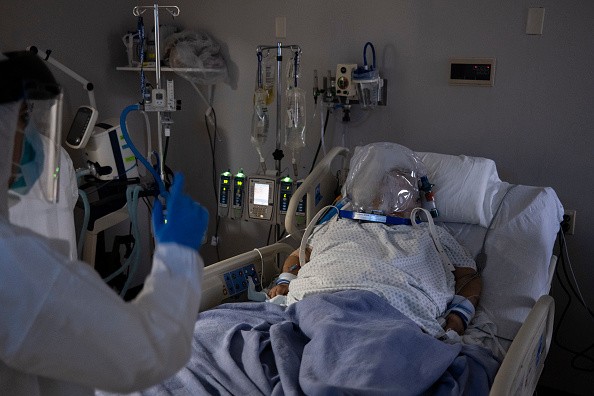COVID-19 Disease May Fall Men's Testosterone Levels, New Data Says
COVID-19 may deplete men's testosterone levels; asymptomatics could also 'lose their sex drive,' new data says.
Many are wondering why men are more susceptible to having severe COVID-19. Well, a study suggests that COVID-19 disease depletes men's testosterone levels, causing them to lose their sex drive. Researchers in Turkey studied the sex hormone levels on 200 men who were hospitalized after they tested positive for the virus.
More than half (51%) had developed a condition called hypogonadism that causes their bodies to not produce enough testosterone. On average, participant's testosterone levels drained by 30% post-infection to borderline unhealthy levels.

According to Daily Mail, Academic claims a direct correlation between severe COVId-19 disease and the decrease of testosterone levels. Even among men who are asymptomatic of the coronavirus at all had lowered sex drive. Two-thirds reported having decreased sex drive- a tell-tale sign of low testosterone.
Testosterone helps regulate the immune responses in men, including fighting viral infections, aside from being a key in developing sex organs and muscle growth. A low level of testosterone is linked to an increased risk of dying from flu and inflammation, high blood pressure, and heart disease.
Behind the study, the University of Mersin scientists believe that the coronavirus makes men more vulnerable to the illness and could have worse symptoms by hampering their immune system.
The journal of The Aging Male published a study that looked at 232 male patients tested positive for the virus. The participants were divided into three groups: intensive care patients, asymptomatic patients, and those who needed standard hospital care.
Coronavirus could infect testicles
COVID-19 may cause men's testicles to swell as well as to impair the ability to have children, according to doctors' warnings.Since the pandemic began, more than a dozen coronavirus symptoms were reported, including fever, loss of taste or smell, and dry cough.
However, medics in the U.S. told men to be extra careful of the virus after a patient was taken to A&E with swelling and 'discomfort' in scrotum. The patient is suffering from more common COVID-19 signs, such as fever and cough, for a week before going to the hospital. The doctors from San Antonio Uniformed Services Health Education Consortium in Texas stated that the virus damaged the patient's spermatocytes that keep sperm healthy. They warned of the damage that the coronavirus could cause and could have 'a future impact on male fertility'.
Similar reports of testicular pain in COVID patients have previously reported, but there has been no related research into the link.
The patient's doctors believe the coronavirus entered the body through ACE2 receptors on Leydig cells present in the testes.
Authors of the American Journal of Emergency Medicine admit that those cases are rare. But they want to raise awareness about them to help other medics determine the disease at an early junction and could trigger appropriate treatment, fertility follow-up, and quarantine.
The reported patients spent a night in the hospital prior to being discharged and prescribed painkillers and antibiotics. The patient's pain has eased slightly, but the case report did not indicate if his condition has improved in the weeks after.
Check these out:
Fauci Says Take Vitamin D If You're Deficient. How to Know If You Are?
Brain-Eating Amoeba Found in Texas City's Water Supply, Residents Warned
CA Wildfire Smoke Could Cause Premature Deaths, New Research Says
Subscribe to Latin Post!
Sign up for our free newsletter for the Latest coverage!

















